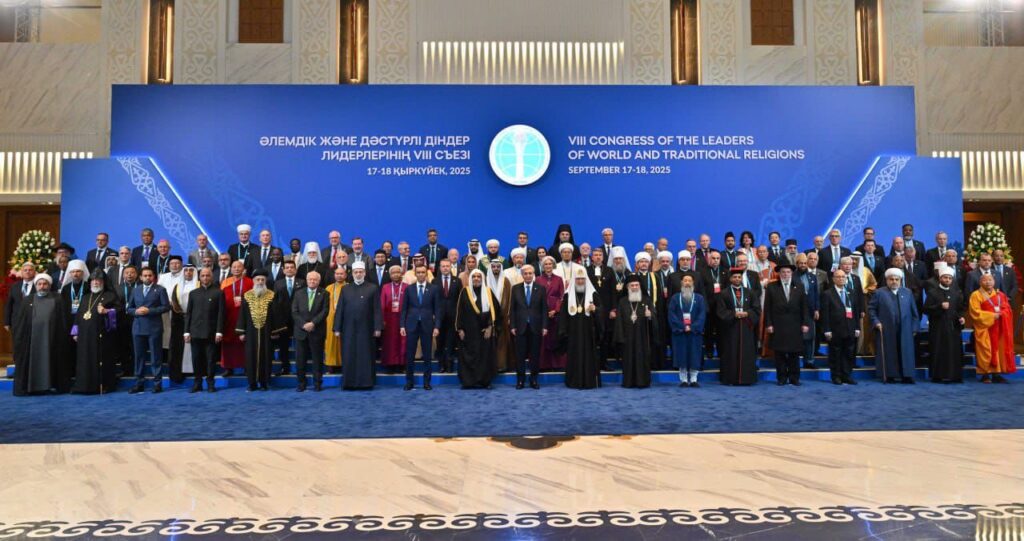The Muslim Council of Elders participated in the Eighth Congress of Leaders of World and Traditional Religions, held in Astana, the capital of Kazakhstan, from September 17 to 18, under the patronage of President Kassym-Jomart Tokayev of the Republic of Kazakhstan with attendance by prominent religious leaders and figures from around the world.
In his address during the congress’s main session, His Excellency Judge Mohamed Abdelsalam emphasized that this distinguished gathering reflects a shared commitment to dialogue, which transcends mere exchanges of words. It represents a culture demanding courage and resolve, particularly when involving religions—not just rituals and practices but comprehensive visions of the human self, the other, and the ethical values that guide them toward fostering refined interactions, mature human relationships, and constructive engagement.
He noted that the Muslim Council of Elders has consistently championed interfaith dialogue, working for years to promote its values through numerous global initiatives. Notable among these is the historic Document on Human Fraternity, co-signed in 2019 in Abu Dhabi by His Eminence Dr. Ahmed Al-Tayeb, Grand Imam of Al-Azhar and Chairman of the Muslim Council of Elders, and the late Pope Francis of the Catholic Church. Additionally, the Intra-Islamic Dialogue Conference was organized to foster dialogue among all components of the Islamic world.
He further highlighted that the Muslim Council of Elders launched the “Call of Conscience: Abu Dhabi Joint Statement by Religious Leaders for Climate” and, for the first time in the history of the Conference of the Parties, established the Faith Pavilion at COP28 and COP29. The Council is currently collaborating with Al-Azhar and the Holy See to develop a document on the Ethics of Artificial Intelligence, recognizing this transformative technology’s potential to benefit humanity while requiring an ethical and value-based framework to ensure its optimal use for all.
His Excellency Judge Mohamed Abdelsalam emphasized the crucial role that religious leaders can play amid the wars and conflicts facing the world today, particularly the unjust aggression against innocent civilians in the Gaza Strip, which has resulted in tens of thousands of victims. Over two million people are currently enduring policies of killing, starvation, and attempted forced displacement. He called on religious leaders and figures to work together to rally support for halting this aggression and finding effective solutions to wars and conflicts around the world.
The Muslim Council of Elders also expressed its appreciation for the Congress of Leaders of World and Traditional Religions’ outstanding efforts to promote tolerance, mutual respect, and deeper understanding among religious communities. Since its inception in Astana in 2003, the Congress has laid the foundation for a pioneering experience. The Council also praised Kazakhstan’s rich religious, cultural, and civilizational diversity, which has defined its historical landscape through the ages and continues to thrive today.

